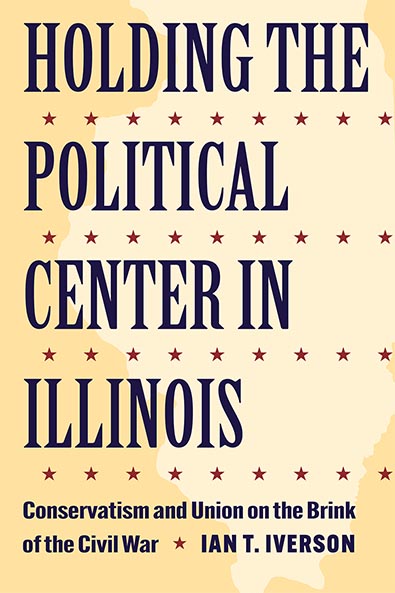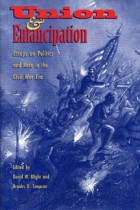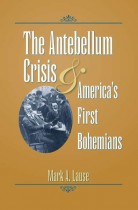Holding the Political Center in Illinois
Conservatism and Union on the Brink of the Civil War
Civil War Era, Interpreting the Civil War: Texts and Contexts, U.S. HistoryIan T. Iverson
Holding the Political Center in Illinois charts the political trajectory of Illinois from the introduction of the Kansas-Nebraska Act in 1854 through the firing on Fort Sumter in 1861. Throughout, Ian T. Iverson focuses on political moderation in this era of partisan extremes, one in which the very label of “conservative” was contested. Most often framed through the biography of Abraham Lincoln, the turbulence of antebellum-era and political realignment in Illinois has been widely misunderstood, yet the Prairie State’s geographic, economic, and demographic diversity makes it an especially fascinating microcosm through which to examine the politics of self-identified conservatives leading up to the Civil War.
Most politicians and voters in this period claimed to be conservative and stood opposed to radical secessionists and abolitionists. By positioning “conservatism” as a disposition rather than an ideology, Iverson explores how mainstream politicians in the Democratic, Republican, and Know-Nothing Parties employed a shared interpretation of American liberty, history, and institutions to court voters throughout the sectional crisis. Ultimately, this united reaction against secession, which propelled Lincoln and Stephen A. Douglas to rally together behind the Union’s banner in April 1861, rose from an unconditional centrist commitment to the Union—the core value defining conservatism.
Ian T. Iverson is associate editor of the John Dickinson Writings Project at the University of Delaware. A graduate of Princeton University, he holds a PhD in American history from the University of Virginia. His doctoral dissertation won the 2023 Hay-Nicolay Dissertation Prize, awarded by the Abraham Lincoln Association and the Abraham Lincoln Institute for the best dissertation on Lincoln’s legacy.
“Ian T. Iverson’s volume is a laudably nuanced exploration of the meanings of conservatism in what he rightly calls a ‘critical state.’ Both the depth and the breadth of his research, encompassing all the contending political parties in his analysis, greatly strengthen the book’s contribution to a growing literature on conservatism and unionism in the Civil War era. It also sheds welcome state-level light on well-known late antebellum political events.”
—Matthew Mason, professor of history at Brigham Young University and author of Apostle of Union: A Political Biography of Edward Everett
***
“Most studies of the leadup to the American Civil War focus on political disagreements that soon exploded into violence. Holding the Political Center in Illinois looks instead at the broad Northern consensus that reverenced the Constitution and the Union. Abraham Lincoln’s Republicans and Stephen A. Douglas’s Democrats, even though tenacious rivals, each saw themselves as conservatives who treasured popular government. When the Confederate South chose to fight rather than accept the results of the 1860 election, Northern political leaders and citizens joined hands to uphold the handiwork of the Founding Fathers. Ian T. Iverson’s book is especially notable for demonstrating that prewar Republicans had no plan to end slavery in the foreseeable future.”
—Daniel W. Crofts, author of Lincoln and the Politics of Slavery: The Other Thirteenth Amendment and the Struggle to Save the Union
***
“Conservatism is a slippery concept, but it is absolutely essential for understanding 19th-century American politics. In this robustly researched case study of late antebellum Illinois, Ian T. Iverson traces a sturdy thread of conservatism through the twists and turns of party competition and sectional conflict, arguing that a conservative commitment to the Union provided the basis for unity against Southern secession.”
—Michael E. Woods, author of Arguing until Doomsday: Stephen Douglas, Jefferson Davis, and the Struggle for American Democracy
***
“This is one of the best books about 19th-century US politics to be published for many years. Ian T. Iverson’s great historical achievement is to describe how antebellum Illinoisians understood themselves. He paints a picture of a fast-moving political crisis in which self-described conservatives tried to hold off the threat from radical abolitionists on the one hand and a newly assertive Slave Power on the other. Iverson shows that the route to power for antislavery politicians in Illinois was to frame politics as a contest between ‘true conservatives’ devoted to the Union and rabid proslavery radicals. Holding the Political Center in Illinois is a salutary reminder in the folly of imposing contemporary political labels on the past and an essential read for anyone interested in how a polarizing political system can implode.”
—Adam Smith, University of Oxford, author of The Stormy Present: Conservatism and the Politics of Slavery, 1846-1865





